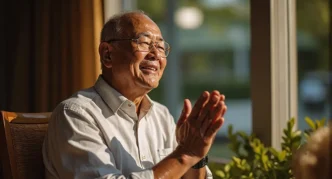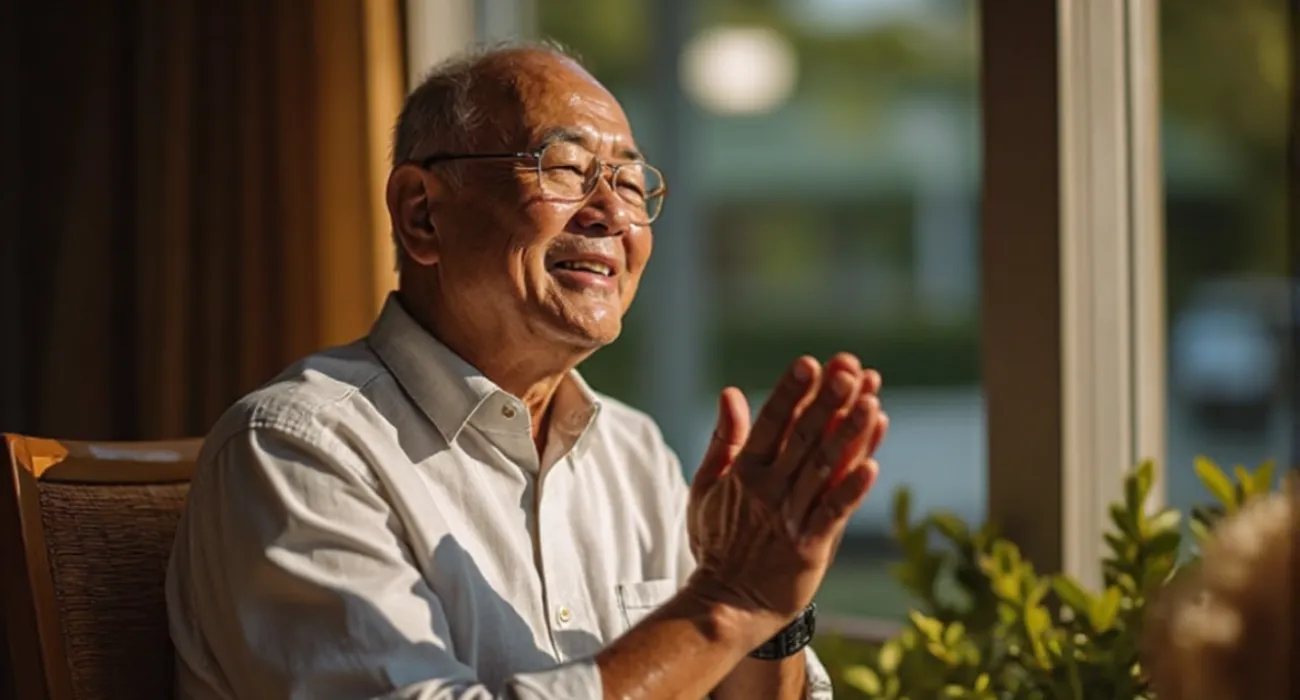In a rapidly ageing Singapore, a pioneering private assisted living project at Parry Avenue in Kovan is set to redefine eldercare options. Operated by a subsidiary of Perennial Holdings, the facility promises to blend housing with tailored care services, offering a middle ground for seniors who need assistance but not the intensive support of a nursing home. With sign-ups opening by the third quarter of 2025 and move-ins expected by early 2026, this initiative marks a significant step in addressing the needs of the city-state’s growing elderly population.
A New Model for an Ageing Society
Singapore’s demographic landscape is shifting at an unprecedented pace. By 2030, the number of residents aged 65 and above is projected to surpass 900,000, representing a substantial portion of the population. This surge, coupled with declining fertility rates and shrinking family support structures, has intensified the demand for innovative eldercare solutions. The Parry Avenue project, a collaboration between the Ministry of Health, the Urban Redevelopment Authority, and industry partners like Perennial Holdings, introduces a hybrid housing-cum-care model that mirrors publicly run community care apartments in areas such as Bukit Batok and Queensway.
Unlike traditional nursing homes, this privately operated facility targets seniors across a spectrum of needs—from those who are relatively independent to individuals requiring help with daily activities or managing mild dementia. Spanning 195,000 square feet, the development will include 200 assisted living apartments, a 100-bed nursing home, a wellness clubhouse, a geriatric care center, and a 1.5-hectare community park. The design prioritizes accessibility and quality of life, with one- and two-bedroom units ranging from 366 to 666 square feet, complete with private lifts, balconies, sky terraces, and green spaces.
“Singapore already has very high home ownership, so when people stay at this project, it must be better than their home” said Perennial’s chief executive Pua Seck Guan in an interview with The Straits Times on June 12. He emphasized the goal of creating a “five-star hotel environment with services,” targeting middle- to high-income seniors with tiered pricing based on care needs.
Lessons from China: Technology and Integration
Perennial Holdings brings a decade of experience from China’s eldercare sector to this venture, having expanded into that market in 2015. With a portfolio of over 25,000 beds across medical and eldercare facilities in cities like Beijing, Tianjin, Xi’an, Chengdu, and Shanghai, the company has honed strategies that it plans to adapt for Singapore. During a recent press tour of its facilities in China, journalists observed the pervasive use of technology—from apps that monitor vital signs to in-room sensors with fall detection and even in-bed toileting systems that automate hygiene for mobility-impaired residents.
“China, being a very big market, is also a very competitive market. We learnt a lot in terms of technology and equipment” said Mr. Pua. He highlighted the potential of such tools to address Singapore’s manpower crunch in eldercare, where one-on-one caregiving—common in China—may be less feasible. Subject to local regulatory approval, Perennial aims to introduce these innovations at Parry Avenue, reducing reliance on manual labor for routine tasks and enhancing resident safety.
Another key takeaway from China is the integration of medical care with eldercare. At facilities like the Perennial Eldercare Community Tianjin, which began operations in June 2024, services range from independent living to nursing hospitals for high-needs residents. This holistic approach includes Western medicine, traditional Chinese medicine, and rehabilitation. In Singapore, the Parry Avenue geriatric care center will focus on specialties like dementia and chronic conditions such as diabetes and hypertension, ensuring “convenience of services at the doorsteps of patients” said Mr. Pua.
Dignity in Design: Catering to Diverse Needs
The project also draws inspiration from specialized facilities in China, such as a care village for Alzheimer’s patients in Xi’an. There, cognitively impaired seniors live within a gated compound that allows freedom of movement and a sense of normality, rather than the restrictive supervision typical of many homes. “We need to treat such dementia patients with dignity” said Mr. Pua. At Parry Avenue, a dedicated dementia-friendly zone will replicate this ethos, enabling safe mobility for residents with the condition.
Beyond medical and technological provisions, the facility will offer nutritionist-designed meal plans on a rotating menu and a variety of social activities to foster community engagement. These elements aim to enhance mental well-being and combat the isolation often experienced by seniors, aligning with broader goals of livability and inclusivity in eldercare design.
A Test Bed for National Standards
The Parry Avenue pilot is more than a standalone project; it serves as a testing ground for national standards in assisted living, an area currently lacking clear regulatory guidelines in Singapore. Assistant Professor Cynthia Chen from the National University of Singapore’s Saw Swee Hock School of Public Health underscored its importance in diversifying the eldercare landscape alongside government initiatives. “The value of the Parry Avenue pilot lies in its role as a test bed for developing national standards and scalable operating models for assisted living in Singapore” she said.
Prof. Chen outlined key benchmarks for the project, including appropriate staff ratios, continuity of care, and integration with primary healthcare providers. She also stressed the need for transparency in pricing, robust monitoring of resident well-being, and attention to social engagement and mental health support. These standards, if met, could shape future assisted living developments across the city-state, ensuring they are effective and responsive to residents’ needs.
Challenges of Scale and Affordability
While the pilot is a promising start, scaling assisted living to meet Singapore’s growing demand poses significant challenges. Prof. Chen noted that if even 5 percent of older adults opt for such accommodations by 2030, the city would require approximately 45,000 units—far exceeding current supply. Expanding capacity while maintaining affordability remains a critical hurdle, particularly for a population with diverse socioeconomic backgrounds.
“This will require exploring tiered pricing models, public-private partnerships, and scalable infrastructure to ensure that assisted living remains accessible, equitable, and responsive to the diverse needs of Singapore’s ageing population” said Prof. Chen. Perennial’s focus on middle- to high-income groups raises questions about inclusivity, though the company’s real estate expertise could drive premium offerings that set a benchmark for quality.
Looking Ahead: A Blueprint for the Future?
As Singapore grapples with the realities of an ageing society, the Parry Avenue project offers a glimpse into potential solutions. By blending technology, integrated care, and thoughtful design, it aims to address both practical and emotional needs of seniors. Yet, its success will hinge on balancing innovation with accessibility, ensuring that eldercare evolves into a sustainable and inclusive system.
With the first residents set to move in by 2026, all eyes are on how this pilot will shape national policies and influence the private sector’s role in eldercare. Could this be the blueprint for a new era of ageing in Singapore, or will the challenges of cost and scale limit its impact? As the project unfolds, it carries the weight of a nation’s hopes for dignified, supported living in later years.
















